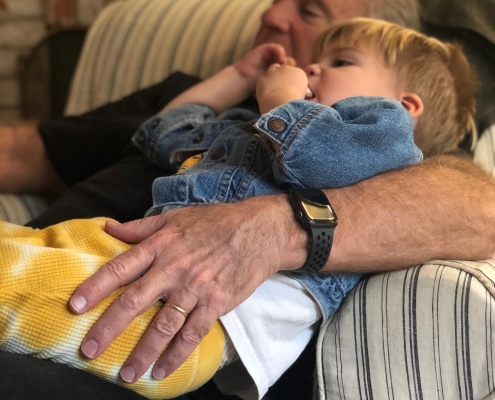Tag Archive for: marriage

Grandparenting
Well. It happened. We became grandparents at the end of December.
Of course, nothing went according to plan. We were expecting this grandson after The Holidays - in early January - right about now. We were mentally preparing…

Please Participate in This Relationship Survey
Every relationship is different - and there are key elements in successful (and unsuccessful) marriages that I'm trying to identify for my next book. By taking Part 1 of this quick, ten-minute, survey you would be helping me identify some…

38 Years Later…What’s the Marriage Secret?
Today my wife, JoAnn, and I are celebrating the thirty-eighth anniversary of our marriage. I’m not bragging… frankly, I’m amazed.
Everyone asks, “What’s the secret?” I'll attempt to explain in a moment.
Now that we have grown…

The Evolving Dad
We’re evolving – all of us – and so is our world, or should I say “our worlds” as each of us is surrounded by our own experience.
As society has shifted away from the “good ‘ol days” (a “Madmen” episode filled with smoke…

The Power of Appreciation
I’ve lived long enough to see many of my divorced friends find new mates. It’s quite a relief actually – not because I think everybody needs to be a couple, but because their divorces have left scars that I’m happy to see healing.
In…

Kanye’s Silver Lining
Yep, we almost saw it again, Kanye West deciding that his musical opinion trumps all others – and that he is the true arbiter of all musical “art.” Part of the good news is that we didn't see it – at least we didn’t see the rude…

Weddings and World Peace
My wife, JoAnn, and I started this year on the perfect note - we went to a wedding on New Year’s Eve. Essentially, we doubled down on hope.
After all, what is more optimistic than two people sharing their love on a day that marks the beginning…

Making Marriage Work
In honor of the fact that JoAnn and I are celebrating our thirty-seventh wedding anniversary this week, I thought I’d reflect a little on what I think has allowed our relationship to survive.
People express their understandings of a marriage…

Confessions of a Former Spanker
Many important issues are raised by the abuse Adrian Peterson, of the Minnesota Vikings, administered to his son. Although there is absolutely NO justification for Peterson’s behavior, and he has been arrested on a felony charge, there are…

Parenting the Puppy
We had plans to go out tomorrow night, but those have been cancelled. We’ve been binge watching TV lately, but now we’re too tired. It’s been two days since we got…the puppy!
She’s a Golden Retriever. She’s ten weeks old. She’s…
